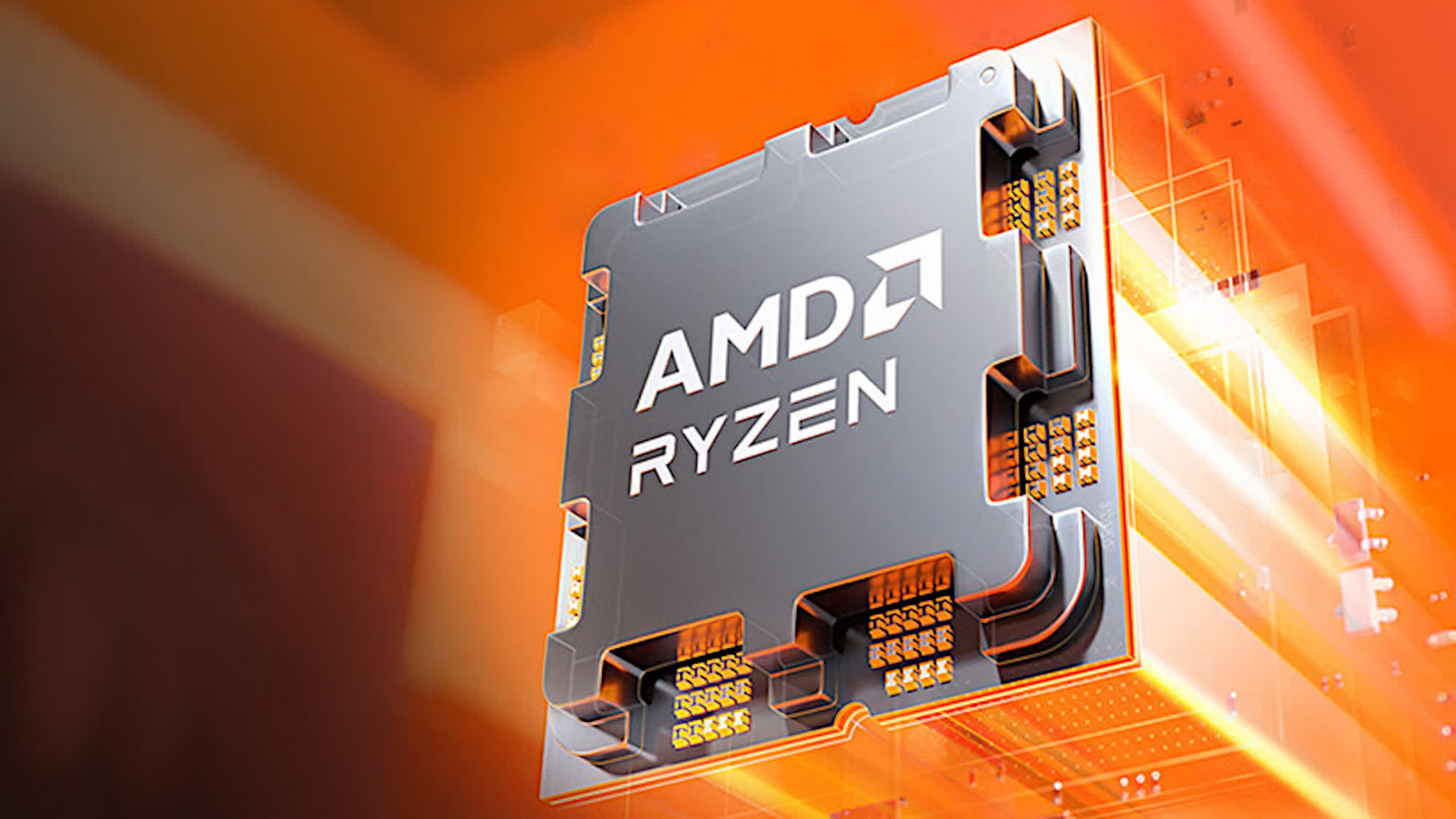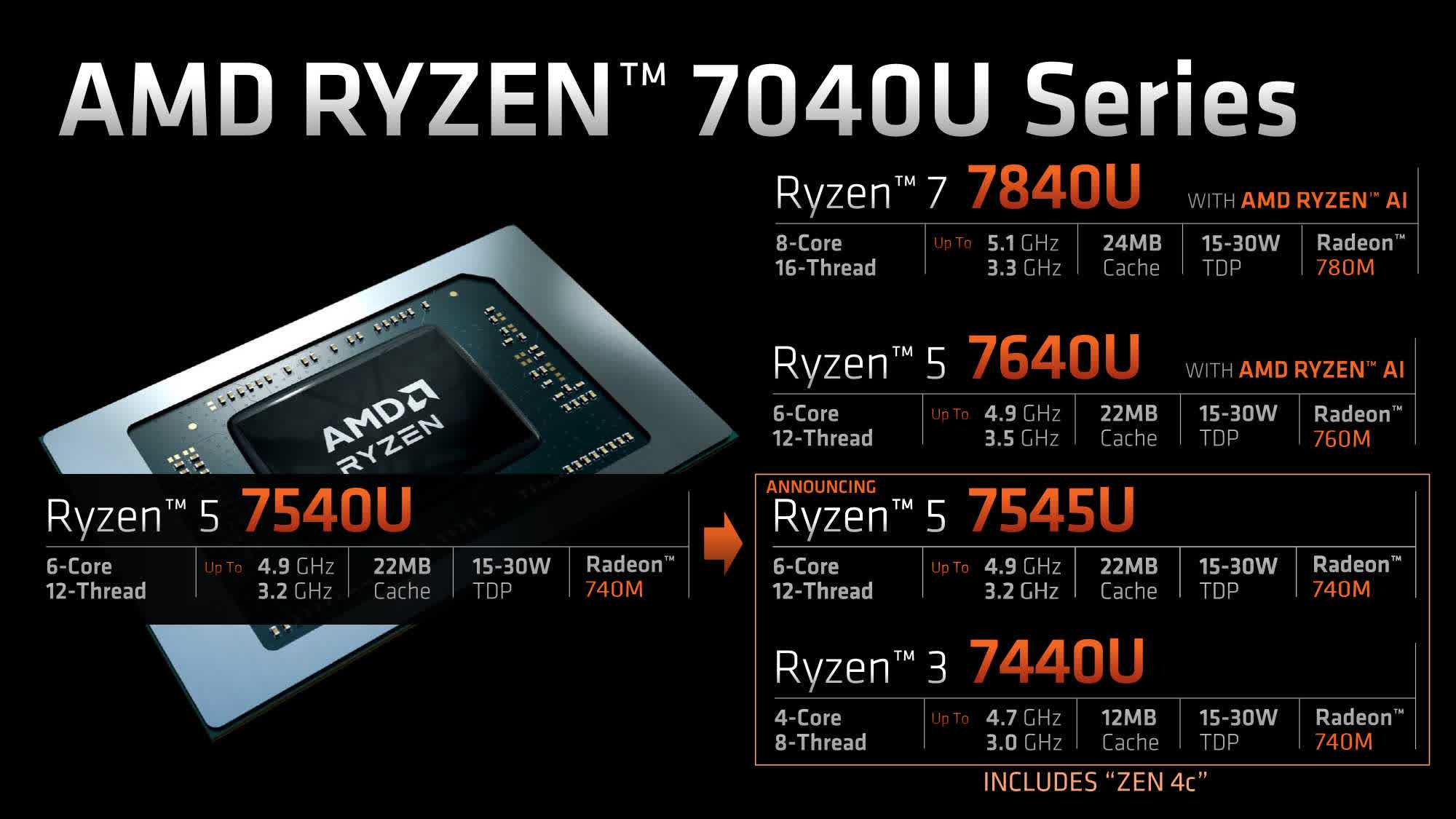What just happened? AMD has introduced a couple of new Ryzen mobile processors for thin and light laptops. The Ryzen 5 7545U and Ryzen 3 7440U are part of the new 4 nm 'Phoenix 2' family and feature Zen 4c CPU cores, which are slightly smaller than the Zen 4 cores found in the company's existing Ryzen 7 7840U and Ryzen 5 7640U.
As for the new chips, both feature a hybrid core architecture and include a combination of Zen 4 and Zen 4c cores. The more high-end one is the Ryzen 5 7545U, which is a 6-core, 12-thread part with 2 Zen 4 cores and 4 Zen 4c cores. It comes with a 3.2GHz base clock and a 4.9GHz boost clock, a 15-30W TDP range, and Radeon 740M integrated graphics. The 7545U has 22MB of total cache, including 16MB of L3.
The other new chip in AMD's portfolio is the Ryzen 3 7440U, which is a 4-core, 8-thread part with a base clock of 3GHz and a boost clock of up to 4.7GHz. It has the same TDP range of 15-30W as the Ryzen 5 part, but only offers 12MB of total cache, including 8MB of L3. Like the 7545U, the 7440U also comes with Radeon 740M integrated graphics.
The new hybrid core architecture has thrown a spotlight on the new Zen 4c cores, with obvious questions about how they differ from Zen 4. According to AMD, the new cores are designed for density and power efficiency and are 35 percent smaller than Zen 4. The new core architecture also offers better scalability, with the potential for allowing higher core counts in future high-end mobile processors.
The company claimed that Zen 4c is a great option for entry-level devices, as the smaller cores with the same IPC consume less power than Zen 4, allowing the chips to deliver more performance below 15W. However, Zen 4 still supports a higher absolute clock limit compared to Zen 4c, enabling the new hybrid chips to offer optimized performance in heavy workloads while delivering a high degree of efficiency.
However, for all the talk about efficiency and performance, the new CPUs lack the 'Ryzen AI' tech that is part of the existing Ryzen 7 7840U and Ryzen 5 7640U. While that isn't the best news for Windows users looking to run AI applications on their laptop, it might not make a huge difference on Linux, as Ryzen AI is not yet supported on the platform. As for when products with the new chips will start shipping, AMD hasn't said anything on that front yet, but an announcement could come sooner rather than later.

